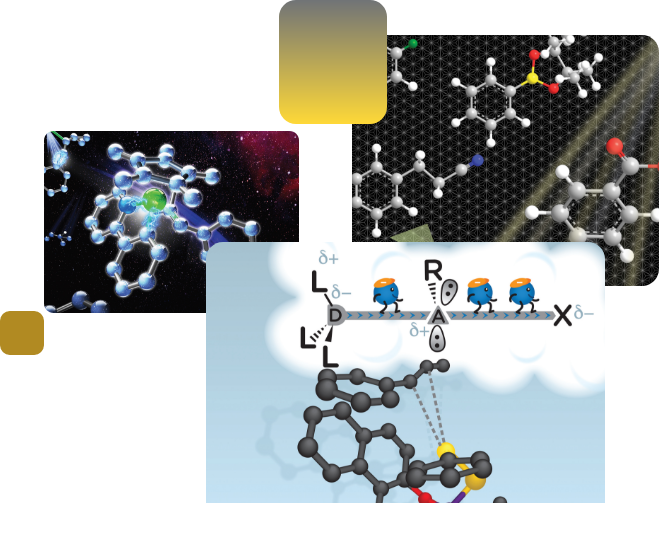Organic Chemistry
What is organic chemistry?
Organic chemistry is the study of the structure, properties, composition, reactions, and preparation of carbon-containing compounds. Most organic compounds contain carbon and hydrogen, but they may also include any number of other elements (e.g., nitrogen, oxygen, halogens, phosphorus, silicon, sulfur).
Originally limited to the study of compounds produced by living organisms, organic chemistry has been broadened to include human-made substances (e.g., plastics).
What do organic chemists do?
Organic chemistry is a highly creative science that allows chemists to create and explore molecules and compounds. Organic chemists spend much of their time developing new compounds and finding better ways of synthesizing existing ones.
Where is organic chemistry used?
Organic compounds are all around us. Many modern materials are at least partially composed of organic compounds. They’re central to economic growth, and are foundational to the fields of biochemistry, biotechnology, and medicine. Examples of where you can find organic compounds include agrichemicals, coatings, cosmetics, detergent, dyestuff, food, fuel, petrochemicals, pharmaceuticals, plastics, and rubber.
Which industries hire organic chemists?
Biotechnology
Virtually all biotechnology (“biotech”) products are the result of organic chemistry. Biotech involves using living organisms and bioprocesses to create or modify products for a specific use. For example, a biotech company might produce seeds for crops that are disease-resistant, or plants that are drought-resistant.
Common employment areas in biotechnology include:
- Health care
- Crop production and agriculture
- Nonfood uses of crops
- Consumer products (e.g., biodegradable plastics, vegetable oil)
- Environmental sector
- Biofuels
Consumer Products
Most consumer products we use involve organic chemistry. Take the cosmetics industry as an example. Organic chemistry examines how the skin responds to metabolic and environmental factors, and chemists formulate products accordingly.
Other examples of everyday products that involve organic chemistry include soaps, plastic goods, perfume, coal, and food additives.
Organic Industrial Chemistry
Crucial to modern world economies, organic industrial chemistry focuses on converting raw materials (e.g., oil, natural gas, air, water, metals, and minerals) into consumer and industrial products.
Today, organic industrial chemistry is based mainly on petroleum and natural gas. Because these are finite raw materials, a lot of industry focus is on learning how to convert renewable resources (e.g., plants) into industrial organic chemicals.
Major organic industrial chemistry sectors include:
- Rubber and plastic products
- Textiles and apparel
- Petroleum refining
- Pulp and paper
- Primary metals
Petroleum
The largest-volume petroleum products are fuel oil and gasoline. Petroleum is also the raw material for many chemical products (e.g., pharmaceuticals, solvents, fertilizers, pesticides, and plastics).
The petroleum industry is usually divided into three major components:
- Upstream – Exploration and production
- Midstream – Transportation
- Downstream – Refining crude oil, processing and purifying natural gas, creating petrochemicals
Pharmaceutical
The pharmaceutical industry develops, produces, and markets drugs used as medications for humans or animals. Some pharmaceutical companies deal in brand-name (i.e., has a trade name and can be produced and sold only by the company holding the patent) and/or generic (i.e., chemically equivalent, lower-cost version of a brand-name drug) medications and medical devices (agents that act on diseases without chemical interaction with the body).
Pharmaceuticals (brand name and generic) and medical devices are subject to many country-specific laws and regulations regarding patenting, testing, safety assurance, efficacy, monitoring, and marketing.
Government
Federal offices (e.g., Food and Drug Administration, Patent and Trademark Office) as well as state and local governments hire organic chemists in the fields of specialization noted above.





